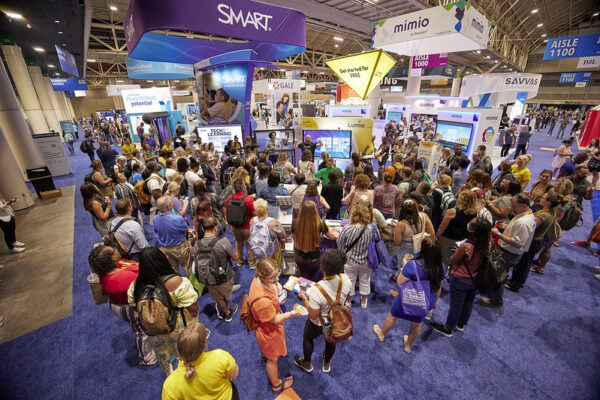I’m still digesting all the conversations, sessions, events, and walkabouts from this year’s ISTE in Philadelphia (not to mention the July 4th barbecue in between!) However, specific themes are certainly starting to come together as I look back on my footage and notes and as I begin to read other folks’ commentary online. I’ve already touched upon some of this and intend to explore more in the next few weeks. I would also like to expand this list as most people share their thoughts and ideas. Please forward them along! (Want the full eSchool News product roundup? Buckle up and click here.) All still photography courtesy of ISTE.
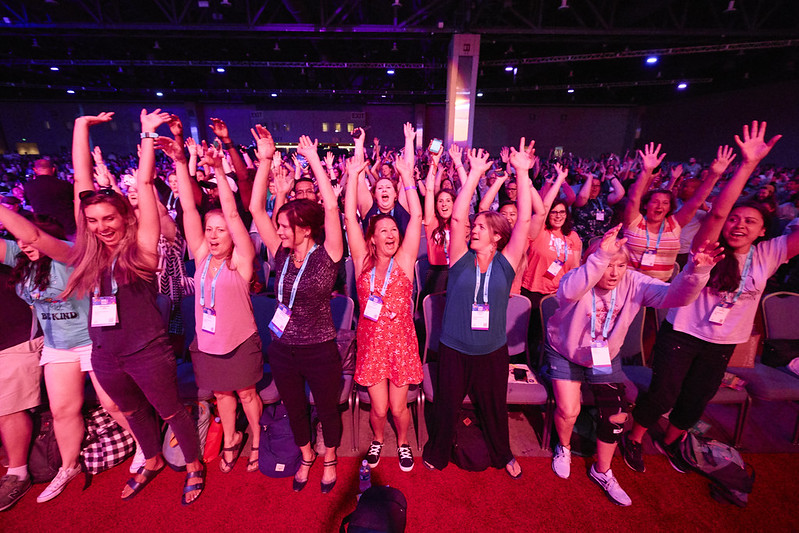
AI—This time last year at ISTE in New Orleans, there was some big-picture discussion about the potential of artificial intelligence, along with a bit of fear-mongering. This year, I was hard-pressed to find a booth or have a conversation without at least a mention of it. And for good reason. I like to think my prediction that the PowerSchool announcement will be baking Microsoft’s Azure tools into its platform was in fact the biggest but not the only news in this category. Impero Software announced that it has incorporated AI and machine learning into its newly debuted “Impero Wellbeing” student safety software. When installed on student devices, the software actively and automatically monitors for harmful keywords – such as those having to do with self-harm, bullying, violence, drugs, weapons, pornography or radicalization. If the software detects a student typing potentially dangerous keywords, it then records the incident by snapping a series of screenshots and flagging them in real-time for teacher and administrator review.

The AI component is able to sort through the potentially thousands of flags and intelligently cut through false positives to give teachers immediate visibility to any concerning student behavior. ASCD intends to add AI functionality to Witsby, their new professional learning and credentialing platform featuring ASCD’s content. Designed for digital, the next-generation professional learning platform features thousands of bite-sized learning objects, courses and on-demand content from ASCD authors and experts to support the ongoing development and growth of teachers. Witsby is backed by analytics, multi-layered reporting tools and authoring capabilities to give school leaders the ability to blend their own professional development assets with ASCD professional learning content.

And then there are the AI advocates at Merlyn Mind, who announced the launch of a suite of large language models (LLMs) specifically tailored for the education sector under an open-source license. Merlyn said that its LLMs, developed with an emphasis on education workflows and safety requirements, would empower teachers and students to engage with generative models that operate on user-selected curricula, fostering an enhanced learning experience. I won’t get any deeper into the weeds here, but check out this conversation with Merlyn CSO Levi Belnap on the potential.
AR/VR—We can’t forget the other hyped education acronym that begins with A. Augmented Reality and Virtual Reality were again front and center on the show floor and in the session rooms. zSpace announced the expansion of computer science and cybersecurity content on the Inspire AR/VR Laptop. As part of this development, zSpace has partnered with SurfWisely, to introduce a new application that will join the existing offerings by Mastery Coding and BlocksCAD3D. This collaboration aims to provide a comprehensive computer science offering to the existing and extensive range of K-12 STEM and CTElearning experiences already being used in over 3,700 schools and districts. Avantis Education has partnered with the Washington-based EdGate to align its 400+ immersive, virtual reality lessons to U.S. state standards in science, social studies and English Language Arts. Avantis Education’s lessons are housed in the Eduverse (www.eduverse.com), Avantis’ built-for-education online platform. The Eduverse is accessible on any device, and is also the content hub for schools using ClassVR, Avantis Education’s VR headsets. In addition to the more than 400 full lessons, the Eduverse provides access to thousands of pieces of immersive, educational VR and AR content to supplement instruction, all in a secure, teacher-controlled virtual environment. You can check out the conversation I had with Chris Klein from ClassVR just before the show. To be honest, I’m still not completely convinced of the AR/VR sector and its ultimate effectiveness in the classroom. The hardware goggles still feel clunky and disorienting, especially for younger children. The is also an equity factor to consider as well.

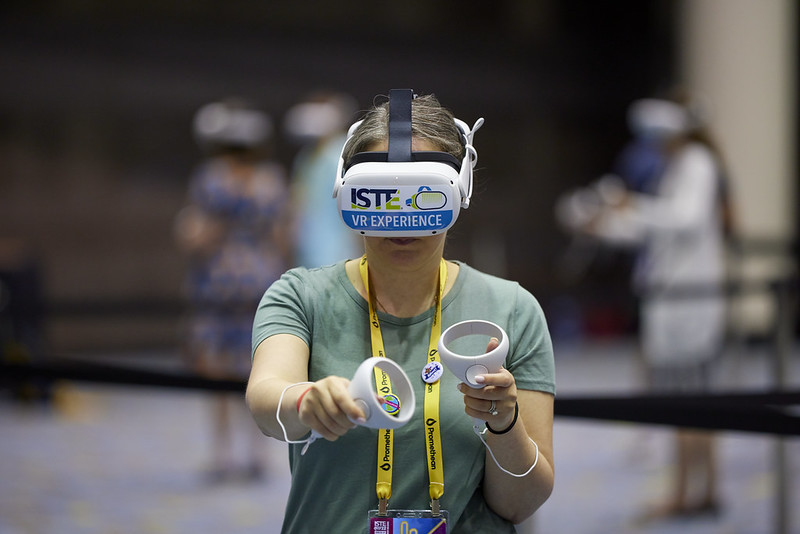
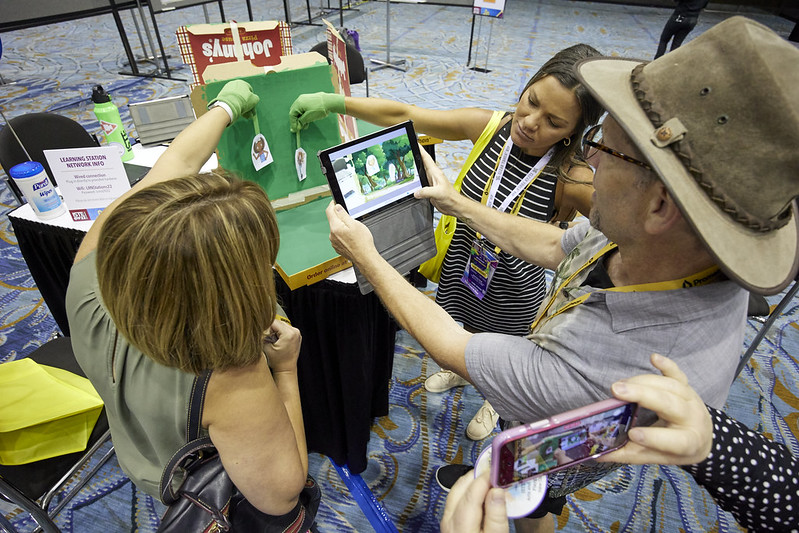
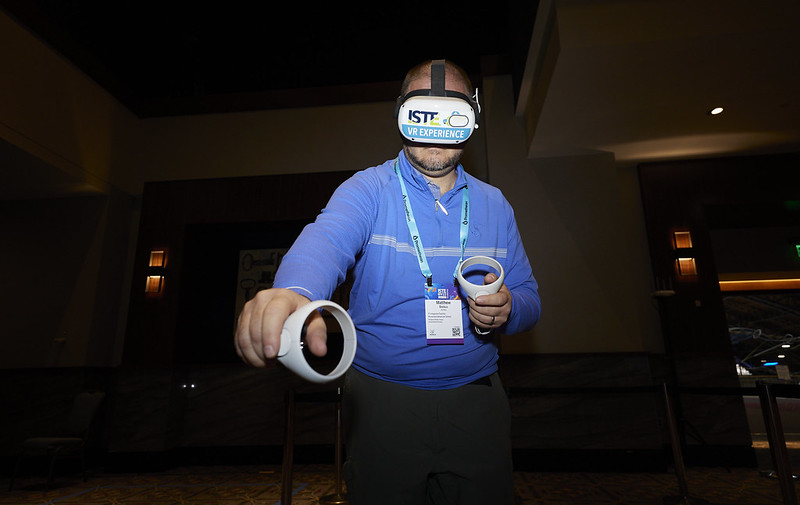
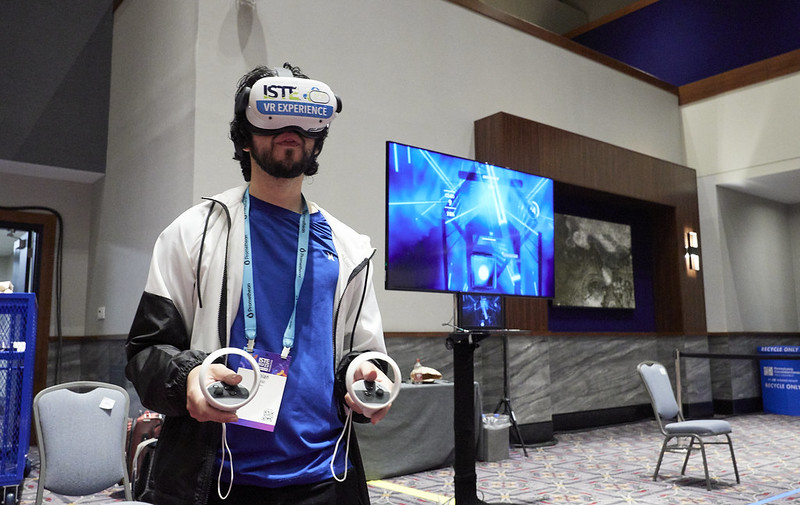
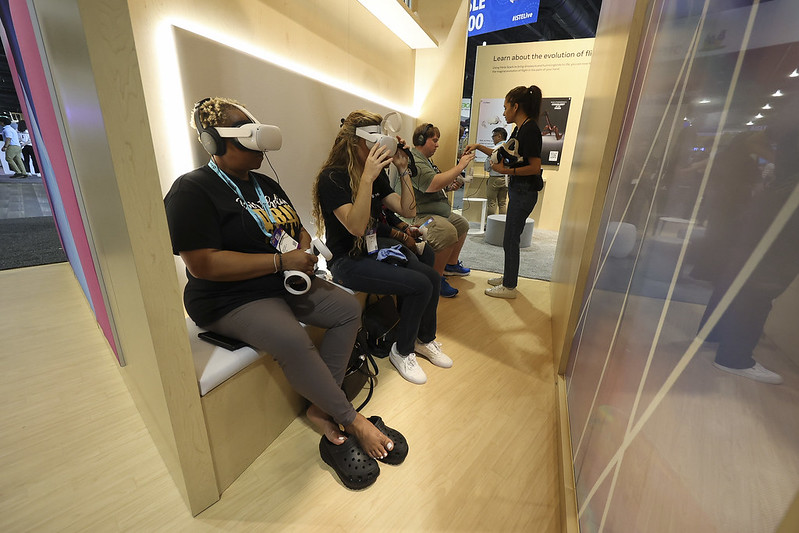
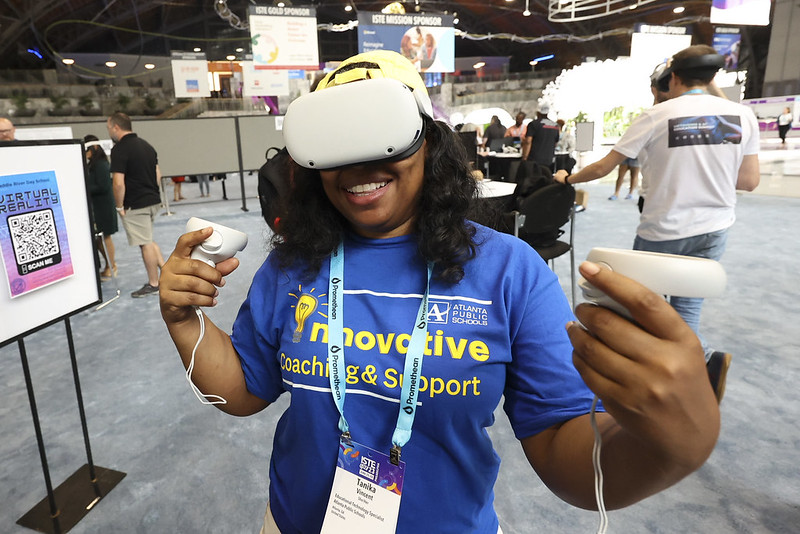
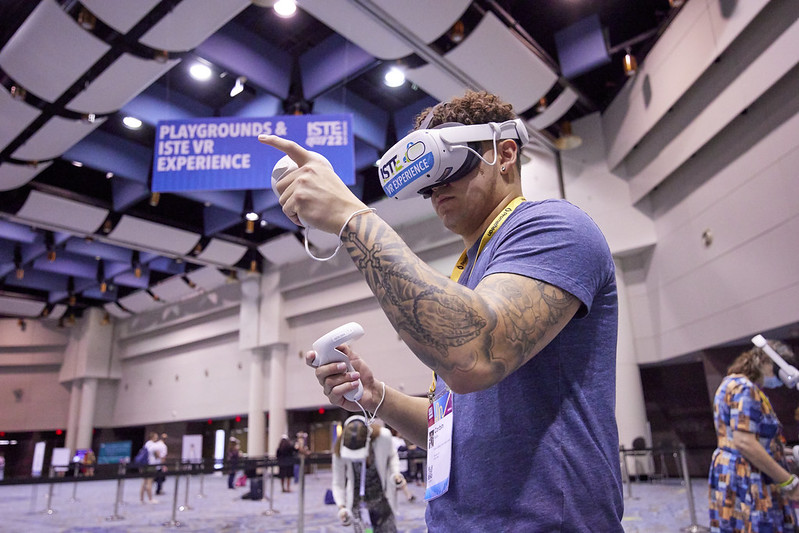
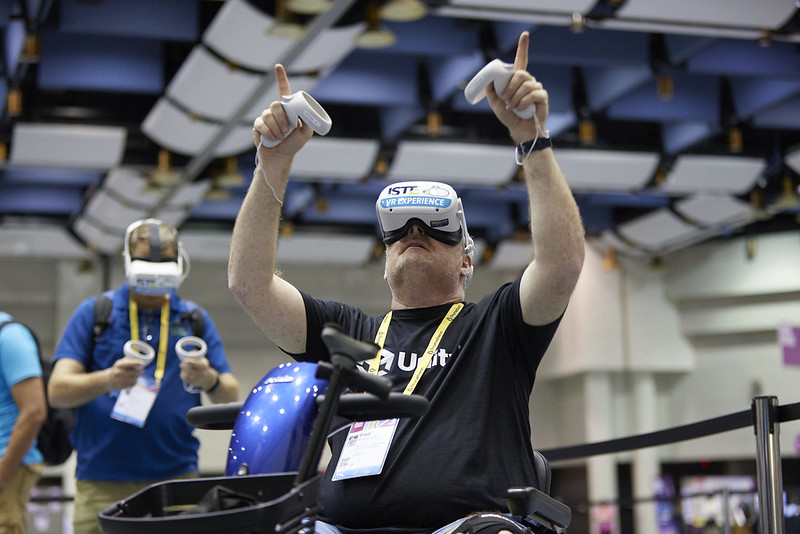
Robotics—They were walking around the convention center and propped up in booths, ready for construction or instruction. After a two-year pandemic hiatus, robots are back for in-person collaboration. New announcements included KinderLab Robotics and KIBO, the hands-on coding robot that teaches computer science, engineering, and computational thinking to young children (PreK-5th grade). The curriculum is standards-aligned in computer science and engineering and supports deep cross-curricular connections to science, ELA, math, and social studies. With KIBO, children build, program, decorate, and bring their own robots to life. Robotical demonstrated Marty the Robot, a humanoid robot. The unique walking mechanism means Marty can walk, turn, dance, kick a ball, etc. And, because each limb is controlled by specific motors, Marty is also more stable and robust than other walking robots. In the Sphero booth, attendees got an exclusive first look at RVR+ and its improvements for an enhanced classroom experience, as well as live demonstrations of Sphero’s award-winning robot for early learners, Sphero indi.
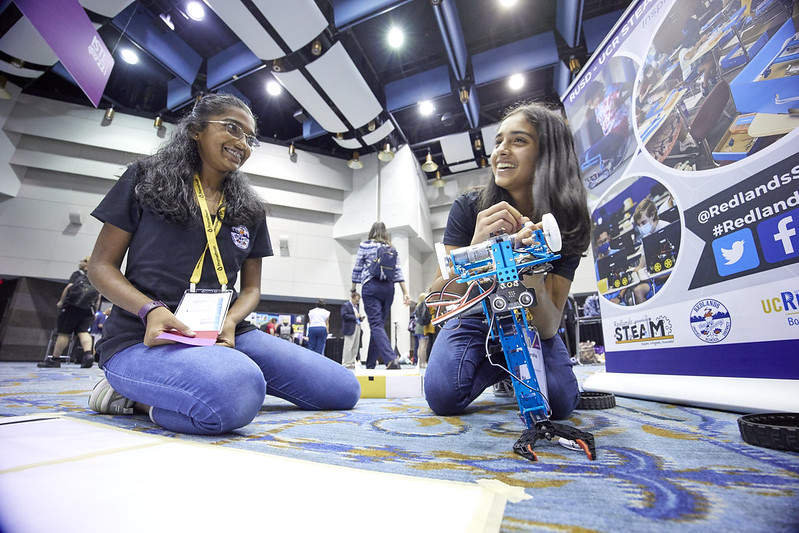
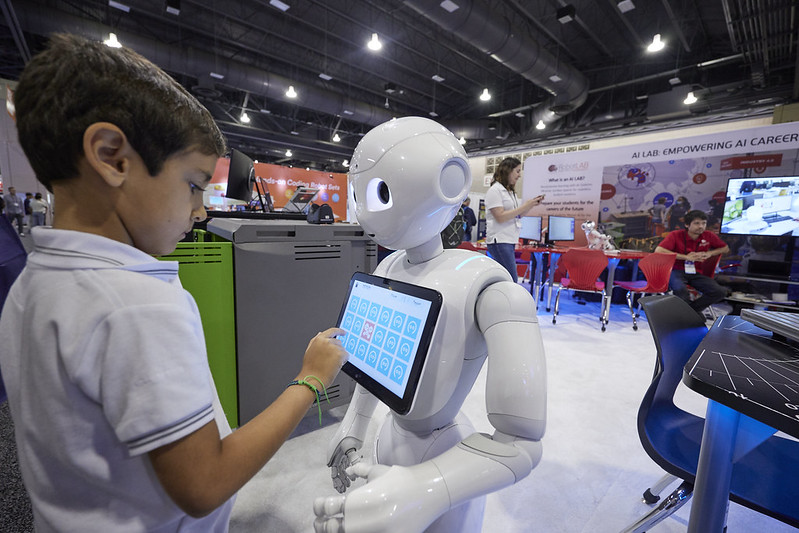

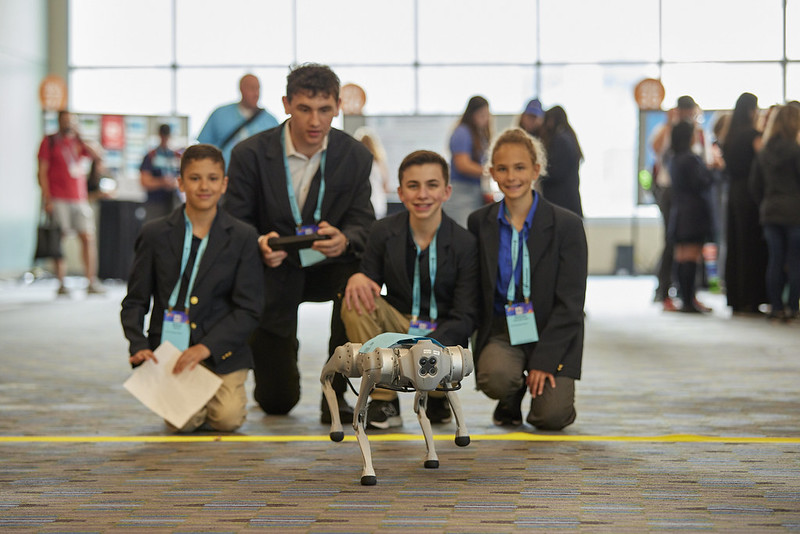
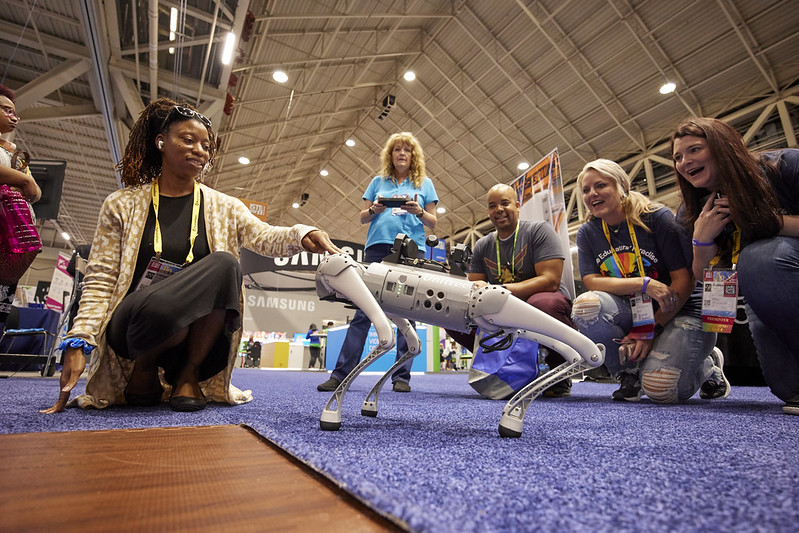
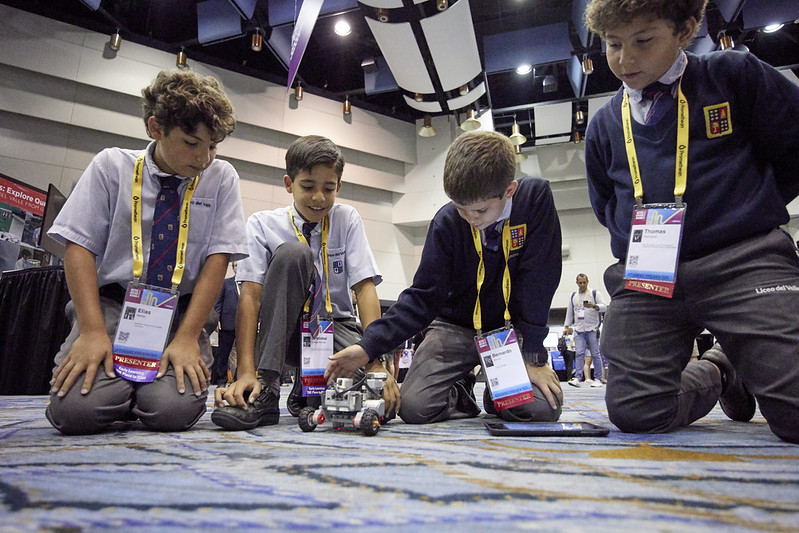
- Meet the Winners—Dr. Kellie Wilks, Chief Technology Officer, of Ector County Independent School District, TX (ECISD) - April 12, 2024
- Meet the Winners—Prince William County Public Schools (PWCS) in Manassas, Virginia wins the 2024 Community Leadership Award for Digital Equity. - April 12, 2024
- #CoSN2024 Conversation – Tom Ryan Co-Founder K-12 Strategic Technology Advisor Group (NM) - April 10, 2024

